NORTHERN IRELAND’S LESSON TO COLOMBIANS: GET A BETTER DEAL
Just as Blair misled the Northern Ireland people about fairness, equality, and those who used or threatened violence being excluded from the government, so Santos lied to Colombians
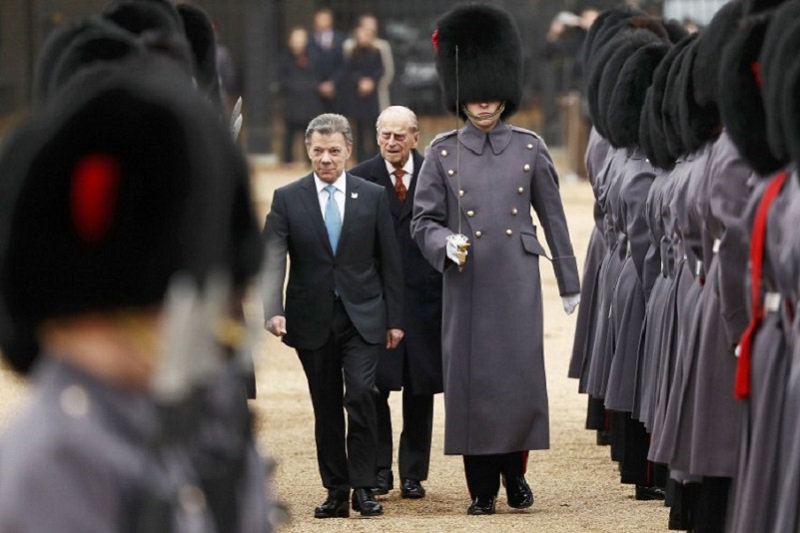
Colombia's President Juan Manuel Santos inspects an honour guard with Britain's Prince Philip during his ceremonial welcome at Horse Guards Parade in central London, on November 1, 2016. Colombian President Juan Manuel Santos, who won this year's Nobel Peace Prize for his efforts to implement a peace deal with FARC rebels, begins a state visit to Britain that includes a trip to once conflict-ridden Northern Ireland. / AFP PHOTO / POOL / STEFAN WERMUTH
Northern Ireland’s Lesson to Colombians: Get a Better Deal
Just as Blair misled the Northern Ireland people about fairness, equality, and those who used or threatened violence being excluded from the government, so Santos lied to Colombians

By Lia Fowler*
November 6/2016
@lia_fowler
Colombian President Juan Manuel Santos’ statements during his UK junket this week were a mixed bag of truth and fiction. Referring to his failed peace deal with the narco-terrorist group FARC – rejected by Colombians in a plebiscite on Oct. 2 – he blamed his defeat on “a strategy of misinformation and lies” by his opponents, and on voters choosing “fear and resentment” over “hope and forgiveness.” The tactic of painting himself as an enlightened democrat, while reducing his opponents to peace-thwarting haters should have struck a familiar chord with the members of Parliament. After all, it came straight from former UK Prime Minister Tony Blair’s playbook during the Northern Ireland peace deal… Which leads to the one truthful statement Santos made on his tour, in Belfast, where he said the Northern Ireland peace process was the example he had followed in his own pursuit of “peace” – to a fault.
“The Price of Peace,” one of the few objective analytical documents on British policy in Northern Ireland, written by Michael Gove for the Centre for Policy Studies in 2000, could well have been written about Santos’ policy with the FARC today. From the framing and selling of the deal, to the failures on the key points of decommissioning, political eligibility for terrorists, and justice, Santos’ policy has mirrored Blair’s. And it was exactly those copycat policies and propaganda that Colombians rejected on October 2.
Gove writes: “When Tony Blair arrived in Northern Ireland for a series of negotiations in 1998 he remarked, unblushingly, that he ‘felt the hand of history’ on his shoulder. Thus blessed, he elevated himself above the realm of ordinary, fallible, politicians into the sphere of statesmen guided by fate.” He goes on to say that the Belfast Agreement, later consecrated as ‘The Good Friday Agreement” was established as a “blessed concord” rather than the political fix that it was. The framing of the deal in such terms was accompanied by a simultaneous and disingenuous attack of the democratic right to oppose, as Blair’s government labeled any dissenters as “opponents of peace.”
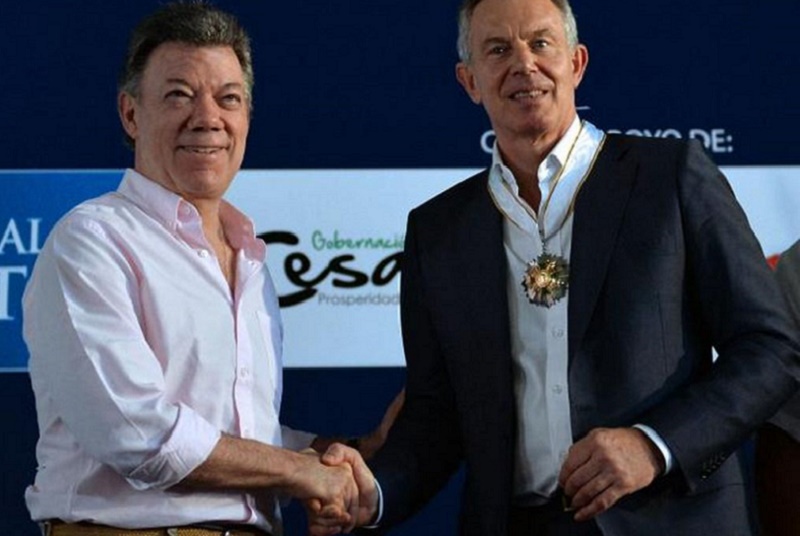
Just as Blair felt “the hand of history” during his Belfast speech in March of 1998, Santos heard bells of peace in his speech before the UN in 2015: “Six months from now in Colombia, bells will ring in ‘the peace.’ I ask that all clocks in the world be synchronized with our hour: the hour of peace, of humanity.” Six months later, the deal had not been signed.
Still, Santos pressed on with his propaganda, using national and international media and think tanks to elevate him to the status of one guided by destiny to be the bearer of “peace.” To cite recent examples, in October, the state-funded Colombian weekly Semana referred to him as “The One Appointed by History,” while the daily La Nacion wrote “Santos: History’s ‘Elected One’ to Make Peace.” A well-placed report by U.S. think tank the Atlantic Council, written in 2015 by Santos’ chief communication strategist, described Santos’ policies as “The Colombian Miracle.”
And just as Blair scrapped the title of “The Belfast Agreement” for the more evocative “Good Friday Agreement,” Santos veered away from the expected “Havana Agreement,” and found inspiration in words from Blair’s May 1998 speech in Belfast, calling his deal “The Final Agreement for the End of the Conflict and the Achieving of a Stable and Lasting Peace” (Blair’s words.)
Santos also copied Blair’s choice words for his critics. Blair referred to his opponents in a 1999 speech at the Labour Party Conference as “those who are addicted to violence” and as being “far right, far out.” Santos, going a step beyond, has repeatedly referred to dissenters as “vultures, who live off of death” and as “fascists and neo-nazis.” All those voting against the Santos-FARC agreement were characterized by the government as war-mongers and “enemies of peace.” Grandiosity in public and vindictiveness in private seems to have been a winning formula for both Nobel Peace Laureates.
But as it turns out, those who opposed Blair’s policy had legitimate cause for concern, as today’s relative peace has come at a very high price. Following the signing of the Good Friday Agreement, and prior to its ratification in a referendum, Blair made promises to the people of Northern Ireland: fairness and equality for all, those who used or threatened violence would be excluded from government, and prisoners would be kept in jail unless violence was given up for good.
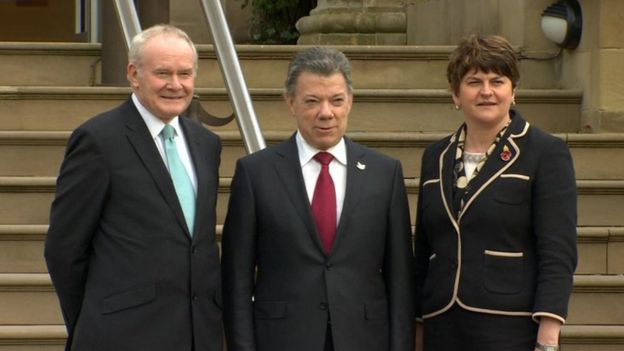
But the referendum and the enactment of the agreements was carried out while the Irish Republican Army (IRA) was still armed, and while so-called “dissident groups” where still committing acts of violence. In fact, decommissioning, which was overseen by an international “independent commission,” was never fully implemented. The final report of the commission was published seven years after the signing of the agreement, in 2005. All that time, terrorists-turned-statesmen participated in politics with their weapons still available, and the implicit threat of renewed violence that carried. And while the report concluded that the arms decommissioned represented “the totality of the IRA’s arsenal,” IRA arms and explosives were still being recovered as recently as 2013 from “dissident” groups.
Still, Santos fashioned the FARC decommissioning process after Blair’s failed one, including the creation of an international committee to oversee the process. Casting doubt on the independence of said committee is the fact that it would include personnel from Cuba and Venezuela – both autocratic regimes that for years have provided training, support and safe haven for FARC terrorists.
Even the vague language regarding decommissioning that the FARC and the Santos administration used throughout six years of negotiations was lifted directly from the Northern Ireland peace
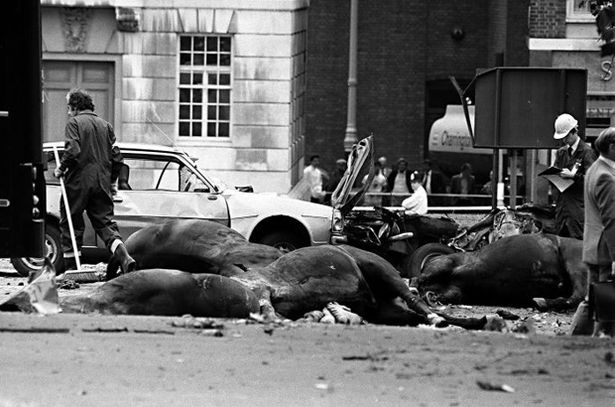
negotiations. In a 1999 communique, the British and Irish governments referred to holding an “act of reconciliation” where some arms would be “put beyond use” on a voluntary basis. This was literally the language used by FARC terrorist Ivan Marquez in an October 2015 televised Univision interview. When asked what the FARC would do with its weapons, he said, “we’re going to put them beyond use.”
Not only was the IRA still armed and arming “dissident” groups for years following the peace deal, but they contributed to violence abroad, as made clear by the August 2001 arrest of three suspected IRA members in Colombia. They were convicted of training FARC terrorists on the use of explosives and sentenced to 17 years in jail. However, they fled to Northern Ireland, which has no extradition treaty with Colombia. Sinn Fein and Republican politicians were silent on the matter.
And all the while, notorious IRA terrorists were legitimized as politicians. Among them is Martin McGuinness: Known during Northern Ireland’s most violent times as “the Butcher of the Bogside,” today he is the Deputy First Minister of Northern Ireland. McGuinness was with Santos during his Belfast address. He has also served as “advisor” to the Santos-FARC negotiations in Havana. But far from serving as an example of peace, McGuinness’ current status – and that of many others – serves as an example of what Colombians don’t want for their future.
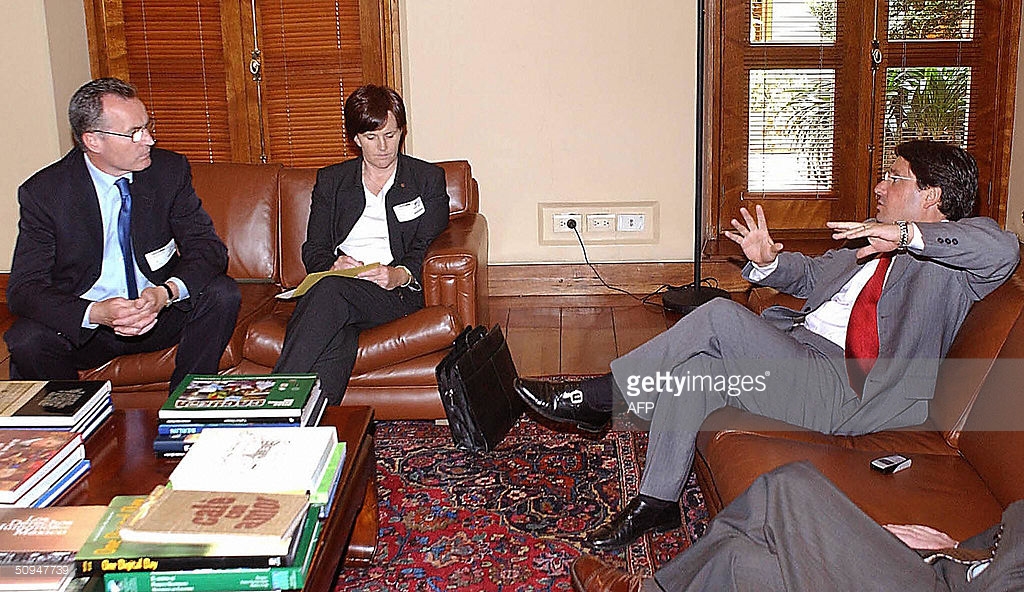
McGuinness was the IRA’s second-in-command in Londonderry between 1971 and 1972. Under his leadership, the IRA murdered 29 members of the security forces and destroyed most of Londonderry’s retail center through a bombing campaign. He claims to have left the IRA in 1974, after serving a six-month stint in jail for possession of explosives. However, Ed Moloney, IRA historian, says McGuinness was the IRA’s chief of staff from 1978 until 1982 and went on to become a commander of the organization’s Northern Command. He has never expressed remorse for his crimes.
Such cases of impunity are common. Under the agreement, convicted terrorists who had served at least two years were released. And in 2001, the government agreed not to prosecute close to 200 terrorists on the run. John Downy, for example, charged with the 1982 bombing of Hyde Park in London that killed 11 soldiers and 7 horses and left dozens injured, was given written assurance in a 2007 “comfort letter” that he would never be prosecuted.
Gerry Kelly is another example. Responsible for a bombing that injured 200 people and killed one, and of leading a prison break in 1983, during which he shot a guard in the face, Kelly received a Royal Pardon. He is now the justice spokesman for Sinn Fein and serves on the Policing Board.
Such levels of impunity are neither fair, nor just. Nor do they respect the thousand of victims of IRA terror. As one Northern Ireland source who lived through the Troubles told me this week, “To
![“Neither Timochenko [supreme leader of the FARC] nor any of the leaders of the guerrilla will access popularly elected positions through the Peace Jurisdiction.”](https://www.periodismosinfronteras.org/wp-content/uploads/2016/11/trino-de-santos-sobre-elegibilidad-política.png)
many decent folk, this situation is unacceptable.”
As it is for decent Colombian folk, who voted against an agreement that would allow FARC terrorists to avoid any jail time and participate in politics.
Just as Blair misled the Northern Ireland people about fairness, equality, and those who used or threatened violence being excluded from the government, so Santos lied to Colombians. In a May, 2012, tweet, Santos claimed, “Neither Timochenko [supreme leader of the FARC] nor any of the leaders of the guerrilla will access popularly elected positions through the Peace Jurisdiction.” By 2015, he was claiming Timochenko could be President. And by the time the deal was signed, the terrorists would receive 10 un-elected seats in Congress and 16 special circumscriptions.
Michael Gove wrote in 2000, that one of the flawed assumptions of British policy towards Northern Ireland was “the belief that armed
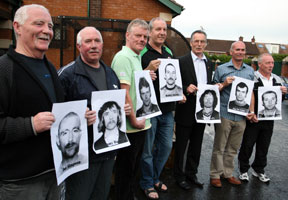
terrorists can be converted to democracy by re-shaping democracy to suit the terrorists.” The Santos-FARC agreement would have done just that:. It would have reshaped Colombia’s democracy to suit a narco-terrorist group that has never represented anybody but themselves and those who have benefitted from their criminal enterprise.
So Colombians said no. They rejected impunity, they rejected political eligibility for perpetrators of heinous crimes, they rejected a flawed decommissioning process and they rejected armed political participation. They want and deserve a better deal.
Santos’ disingenuous words to Parliament were reminiscent of Blair’s May 1998 speech in Belfast: “…to say yes is to say yes to hope, to peace, to stability, and to prosperity. A no vote is to turn your back on the future.” Santos wasn’t just parroting a familiar script: he was using Blair’s tactic of lying to prevent the collapse of his peace process, as Blair himself admitted to doing in his 2010 memoir, “A Journey.” Santos desperately needs international support, as his deal only mustered the support of 17 percent of the Colombian electorate. And just as Blair recently called for a do-over of the Brexit referendum, Santos is seeking support for a do-over of some kind to push through a re-packaged version of his rejected deal.
The Brits wisely said no to Blair’s proposal. Let’s hope they have the same respect for Colombia’s vote.
*Lia Fowler is an American journalist and former FBI Special Agent
A special thank you to some brave and honorable former members of the Royal Ulster Constabulary who provided context and insight for this column
_________________________________________
Notes
http://www.telegraph.co.uk/news/politics/tony-blair/7974270/Tony-Blair-lied-to-stop-Northern-Ireland-peace-talks-collapsing.html

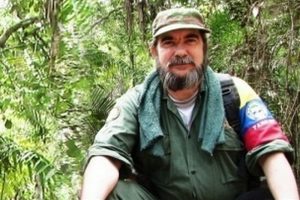
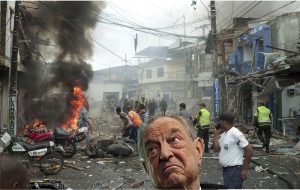
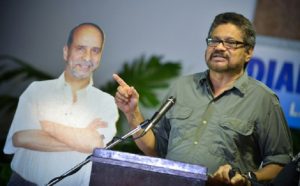
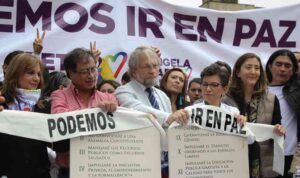
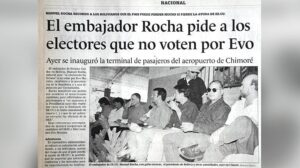
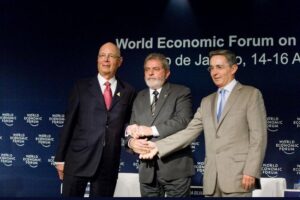
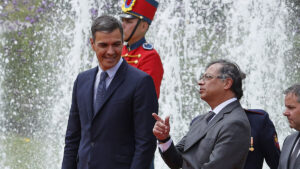
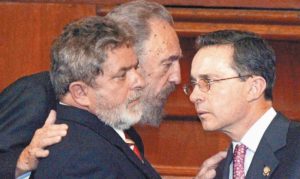
Comentarios